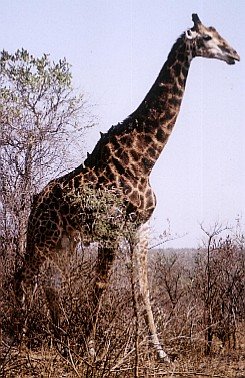
SYNOPSIS OF THE DRAFT OF THE 2nd BY-LAW FOR DOG OWNERSHIP.
CAPE, SOUTH AFRICA.
People have only to 28 August to comment.
2, 3,
NUMBER OF DOGS ALLOWED: (Special permit needed for more)
-two dogs in or at a dwelling unit;
-three dogs, in or at a dwelling house;
-four dogs, to be kept in or at a large dwelling house;
-six dogs,, to be kept on an agricultural property;
-three dogs, to be kept on or at any other premises.
Dog registration re-introduced
5
NOT ALLOWED-bitch on heat in any public street or public place;
- to urge any dog to attack,
- cause worry or frighten any person or animal or through negligence fail to prevent any dog from attacking,
worrying or frightening any person or animal, (except where necessary for SELF DEFENSE)
-any dog which causes damage to public property;
-not to remove any dog feces
-keep any dog which barks for more than six minutes in any hour or more than three minutes in any half hour.
DOG DISTURBANCES NOT ALLOWED:-barking, yelping, howling or whining;
-charging any vehicle, animals, poultry, pigeons or persons
-causes a disturbance or nuisance to inhabitants of the neighbourhood
NOT ALLOWED IN PUBLIC PLACES:
-Dogs suffering from mange or any other infectious or contagious disease;
-ferocious, vicious or dangerous dogs (unless it is muzzled and held on a leash and under control)
DOGS MAY NOT - trespass on private property;
- constitute a hazard to traffic using any public street;
- constitute a source of danger or injury to any person outside the premises on which such dog is kept;
- NOT ON A LEASH in any public street or public place except on a leash (unless the dog is in an area designated by the Council as a free running area).
- keep any dog which does not have on its collar or micro-chip a 1 name, 2 telephone number and 3 physical address or reference to a society for the prevention of cruelty to animals or registered animal welfare organization.
6
YOU MAY NOT -provoke, harass or tease any dog.
-terrify or cause stress or fear to any dog with fireworks or by any other means.
-Have animal for the purposes of fighting any other animal.
-Owns, uses or controls any premises or place for the purpose or partly for the purpose of presenting animal fights.
PENALTY: a fine of R 20 000.00
7
DOG IMPOUNDED / DESTROYED WHEN- is suffering from mange or any other infectious or contagious disease;
-constitutes a hazard to traffic using any public street;
- is at large and apparently without an owner;
- is found in any public place or public street where such a dog is, in the opinion of the authorised official, not on a leash or under proper control
NOT ALLOWED TO:
-Take any dog into custody for the purpose of having it impounded if there are reasonable grounds to believe that the dog is a female dog with un-weaned young, unless such dog and un-weaned young are taken into custody together.
-No person may free any dog which has been taken into custody,
-People can claim their dogs back at a fee and correction of the problem.
-kept at a pound for ten days .
8 (DUTIES OF A POUND MASTER)
THE POUND MAY:
- have any animal destroyed as contemplated in this By-Law and recover any expenses incurred in this regard from the owner
9
FENCING A PROPERTY-No person shall keep a dog if his or her premises are not properly and adequately fenced.
10 RESCUE OF STRAY DOGS
-A person who rescues a stray dog shall report the date and time of the rescue and a description of the dog to the Council within twenty four hours.
11
-A DOG SHALL NOT BE A SOURCE OF DANGER TO:-Council's employees entering upon such premises for the purpose of carrying out their duties
(unless a notice to the effect shall be displayed in a conspicuous place at each access point)
12
REMOVAL OF EXCREMENT IN PUBLIC PLACES.-remove the excrement,
place it in a plastic or paper bag or wrapper and dispose of it in a receptacle provided for the deposit of litter or refuse, excluding a person who is assisted by a guide dog.
-No person shall walk a dog, other than a guide dog, in a public street, public place or public road, without carrying a sufficient number of plastic or paper bags or wrappers, within which to place the excrement of the dog, in the event of the dog defecating.
13 STERILISATION.
- No person, other than a person who has been granted permission by the Council to keep kennels, or the owner of a dog registered by the Kennel Union of South Africa, the Boxer Federation, the SA Sheepdog Association, the German Shepherd Dog Federation or SA Field Trials shall keep a dog, other than a sterilized dog, provided that a person in possession of an unsterilized dog on the date of promulgation of this By-Law, may keep such dog until it dies or is disposed of
TO READ THE FULL DRAFT - CLICK HERE WWW.CAPETOWN.GOV.CO.ZA






 T
T















